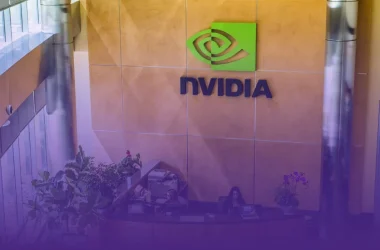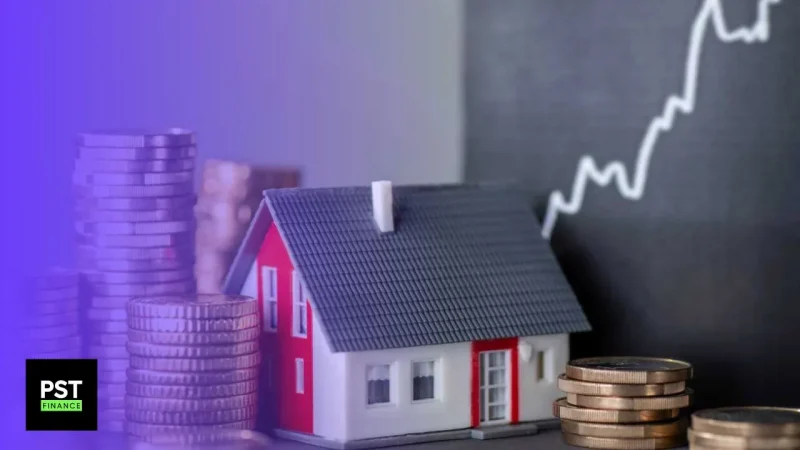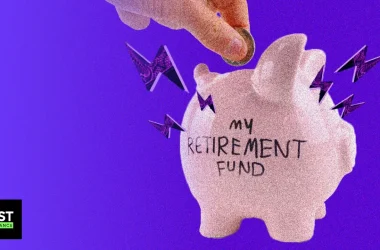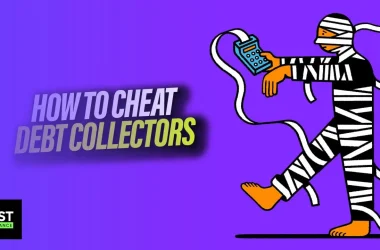Real estate is constantly promoted as a passive investment, but being a landlord isn’t exactly a walk in the park. Dealing with the headaches of property management and tenant troubles are just a few of the hidden cons of renting out a property.
A less well-known way to secure the same attractive returns as a landlord, without having to deal with the hassles is a mortgage note. There are other solutions like tokenized real estate, but mortgage notes are an easy way to get started investing in the real estate sector.
What is a Mortgage Note?
In general, a promissory note, or simply a note, is a document that a creditor gets from a borrower, and in it the borrower promises to repay a debt. Once the note is issued, the lender holds on to it while the loan is outstanding, and any time before the borrower makes the final payment on the loan, the lender can trade or sell the note.
The same concept can be applied to mortgage payments. A real estate note is a legal document created when somebody sells a property and lets the buyer purchase it without involving conventional lenders like banks. Instead, the buyer pays the property seller in installment payments over time for the purchase price, plus interest, minus any down payment that was made.
An Example
For example, let’s say someone is selling their $300,000 house, and a buyer comes along and gives a 20% down payment, which is $60,000. The balance left is $240,000. Normally, they’d go to a bank or some other lender to get financing, but in this case, the seller of the property says “No, I’ll take back a note, and it’ll be 9% interest over fifteen years.” The property buyer will then pay the seller instead of the bank every month, about $2,400 a month.
The note is held by the seller, and it’s secured by a lien on the property. Therefore, if there’s any defaults, the seller can ultimately get the house back. But, let’s say that the seller suddenly needs cash one day, for whatever reason, they can take the note, sell it to someone else, and get paid for it. They’d have to sell it on a discount, because a lot of the payments have already been made, and they might even have to sell it at a different interest rate. Most of the time, these notes carry a higher interest rate than a conventional loan.
The Pros
The pros for the person who carries the note are very obvious. For example, they could get the full price for the property, or even more sometimes, thanks to the interest. There’s also no waiting or wondering if the buyer’s going to qualify for a conventional loan, so the transaction would close a lot more quickly.
If you buy a real estate note, you could also get a substantial monthly income, and you can sell that note if you need cash, or borrow against it from a bank. You could even sell parts of it. In fact, you could agree with someone to sell them the next four payments, for example, or you can sell half the note. You can even trade it for a down payment on a real estate property, or anything else, like a car.
Additionally, if it’s your home that you’re selling, you can use that note to spread out the property sale tax across the years until the note’s maturity, so you won’t have to pay the full amount of the property sale tax right away. As mentioned above, these notes get sold at a discount, but there’s no exact set discount that they get sold at, since that depends on how many payments have been made and the interest rate you, as an investor, want.
For the previous example, let’s say that instead of 9%, you want 12% on that note, so $2,400 per month would be the 12% return on your money, which means that you’ll have to pay $200,000 for that note. But, that doesn’t mean that the person making the monthly payments will get their interest increased to 12%, they’ll still be paying 9%, and nothing changes for them. In fact, the payer might not even know that the note has been sold until they get a notice that they’ll make the payments to you now, rather than the original owner.
It’s just by buying a note at a discount, you increase the return on your money. You can even sell that note for another investor for a 7% yield, and if they’d pay you $270,000 for it, that means you could make $70,000 after buying the note for $200,000.
Where to Get a Mortgage Note
There are many real estate notes for sale online on social media, like Facebook groups for real estate note investing, or on a website like Paperstac. You could also go to a real estate investors club or any association for real estate investors in your state, and start talking to other real estate investors who have notes that they might want to sell.
Another way you can find real estate notes is by thinking of who in your life would get the opportunity to see them on a regular basis; maybe you know an attorney, an accountant, or even a real estate agent who could help you get in touch with a client of theirs that wants to sell their real estate note. You can also put in ads on social media, or in the local newspaper. But, before you head out to buy some real estate notes, you should know their goods and bads, in order to know which notes to buy and which notes to avoid.
What to Consider First
For someone that’s starting out, you should try to stick to first position notes, because they are secured by a mortgage, or deed of trust that is the first priority over all other liens on the property, making them the most secure type of notes. You should also consider the type of property you want to buy the note of, and ask yourself “What would I do with this property if I had to foreclose?”
For instance, you can take back a family house if the payer defaults, but if the property is something like a factory or a shopping center, you might not be able to do much with them. You should also think about the down payment that was made. If it’s less than 15% or 20%, it might be best to avoid that note, because notes that have very little money down, or now down payments at all, usually default. Therefore, the higher the down payment, the better.
You should also look at the payer before you buy a note, maybe even request things like their credit history or previous payments to see if you can guarantee them making the monthly payments. Another thing you need to consider is that the value of the real estate note ultimately depends on the economic conditions that support the value of the property. For example, a house in a good neighborhood, in an area with a diversified, long-term, and stable economy, is how you can get a really high value note.
Beginners should always consider talking to an expert before doing anything, so someone who’s an expert on real estate notes and experienced with this type of deals, maybe another real estate investor or a property broker.
Retire Using a Mortgage Note
The final thing you should consider is the endgame of investing in notes, let’s go back to the $240,000 note from our example, if you sell nine years of payments to another investor for a 6% yield, you’d be selling it for $200,000, which is the exact same amount that you paid for it. This is a 15-years note, so after nine years, the rest of the payments will be yours again, so you’d get $2,400 each month for the next six years, in addition to the $200,000 you sold the note for.
If you do that ten times, you’d have around $300,000 a year coming in, with almost nothing invested. This can guarantee you the perfect retirement, as you could do this in a retirement plan like a self-directed IRA or a self-trust deed 401(k), or even in a Roth account, so you won’t have to pay taxes until you withdraw the money from it.
The Bottom Line
To conclude, we can say that buying a mortgage note is a great way to invest in real estate without actually having to deal with the problems landlords face, and you can even create a portfolio of mortgage notes that will give you true passive income, and help you retire comfortably. The most important thing to know is that all investments present a type of risk, and you can easily overcome that by doing your own due diligence and consulting with professionals.
Disclaimer
Please visit and read our disclaimer here.









